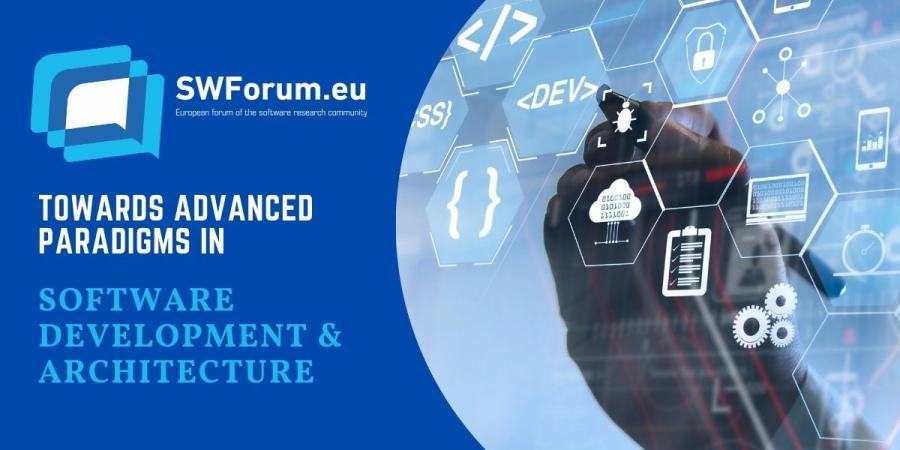SWForum.eu towards advanced paradigms in software development & architecture

One of the most important aspects of the SWForum.eu mission is to track the progress and direction of software engineering research in today’s fast-moving world. In regions around the globe, the respective research communities are architecting their agendas and roadmaps for the future. In one of those regions, the United States, a group of researchers has recently published just such a roadmap that contains a set of key recommendations. A look at this set of recommendations helps SWForum.eu to orient its own discussion forms toward emerging paradigms and topics in urgent need of clarification. There are two kinds of recommendations in this set: those for advanced paradigms in software development; and those for advanced paradigms in software architecture.
The first advanced development paradigm is AI-augmented software development. Here traditional software development is augmented by AI-enabled systems that assist humans in carrying out their work. This is a dream that has been expressed well over thirty years ago, and its time may be arriving soon. The second paradigm is the assurance/validation of continuously evolving software systems. Think of all those automobiles out on the road that will be continuously receiving updates to improve their operation. How can we be sure they will remain safe and secure throughout all of those changes? The final development paradigm is software construction through compositional correctness – that is, the ability to construct software from building blocks and be sure at the same time that all is well and correct.
In the architectural paradigm category, we have engineering AI-enabled systems. We will be seeing more and more of these systems in the coming years. What must we do differently to construct them? Next, we have engineering socio-technical systems. The systems that we see supporting social media are strongly integrated with a human component, as their users contribute and are influenced by many kinds of input, causing the systems to evolve in new ways. Can insights from the social sciences help us to construct these systems better? Finally, we have engineering quantum computing software systems. Quantum hardware advances are all in the news today. But the software that runs on this hardware will be just as important, and probably very different from what we know today.
SWForum.eu is tracking these and other trends in software engineering research as the global software community grapples with the breathtaking pace of software evolution.
For more information see also this news titled Architecting the Future of Software Engineering: A National Agenda for Software Engineering Research & Development.